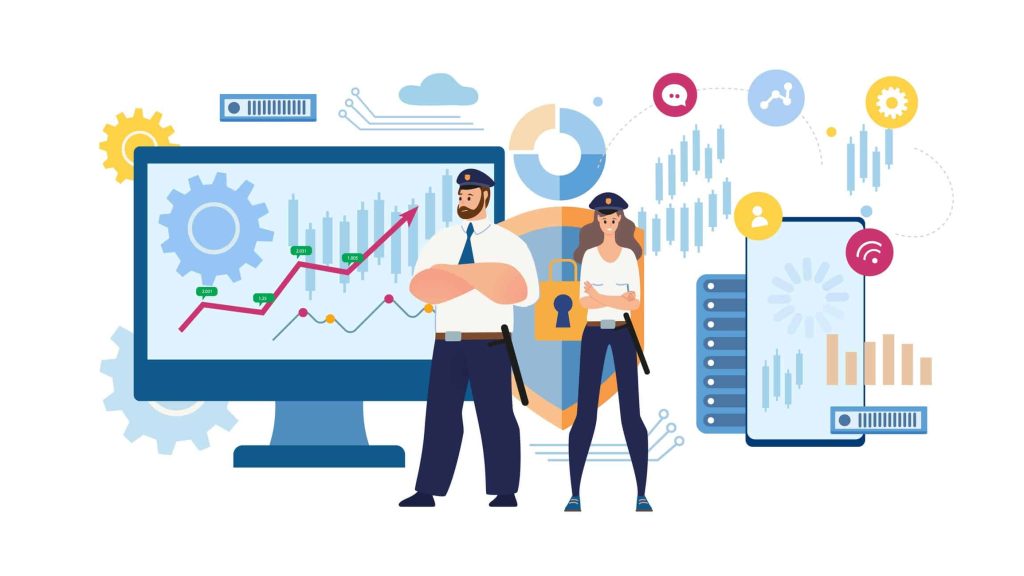.
With the increasing use of cloud services and data storage on the internet, data security and privacy have become increasingly relevant concerns.
To deal with these issues, confidential computing emerges as an innovative technology that allows the processing of sensitive data in a protected and isolated environment, ensuring that the data remains inaccessible to unauthorized access, even for the applications that handle it.
In this article, we’ll explore further what confidential computing is, how it works, and how important it is in protecting sensitive data.
What is Confidential Computing?
Innovative confidential computing technology is capable of processing data in a protected and isolated environment in order to prevent unauthorized access to sensitive information. To ensure data security during processing, specialized hardware is used, such as cryptographic processors and secure memories, making them inaccessible, even for the applications that manipulate them.
This technology is especially valuable for companies and organizations that handle sensitive information such as financial data, personal customer information, medical information and intellectual property. Confidential computing provides a high level of security, protecting data at all stages of processing, from input to output from the system.
How does confidential computing work?
Confidential computing technology is made up of specialized hardware and software that work together to maintain data security during processing. Specialized hardware creates a secure and isolated environment, preventing unauthorized access to sensitive information.
Cryptographic processors are an example of specialized hardware used in confidential computing. They perform encryption and decryption algorithms much faster and more efficiently than conventional processors. In addition, secure memories are used to protect data at rest from being accessed or compromised by unauthorized persons.
In turn, the software is responsible for manage access to data and ensure they are not compromised during processing. It also encrypts the data before processing, ensuring that even in the event of a leak, the data cannot be accessed without the correct encryption key.
How important is confidential computing?
Confidential computing is crucial to ensure the privacy and security of sensitive data during processing. Companies that handle sensitive information such as customer data, financial information and intellectual property depend on this technology to protect that data. Additionally, confidential computing is critical to helping companies comply with privacy regulations such as the GDPR.
Confidential computing technology is also effective in protecting users’ personal data on cloud services such as file storage and email. This is especially important because cloud services are often targets of hacker attacks. looking for confidential information.
What are the main reasons for using confidential computing?
Below, we list some of the main reasons to make use of confidential computing:
Sensitive data protection
Confidential computing technology is indispensable in protecting sensitive data from internal and external threats. Using specialized hardware, confidential computing isolates the data processing environmentensuring that this data is kept secure even if the system is compromised.
Companies that handle financial information, medical data and customer information need to ensure the security of this data, and confidential computing technology is one of the best ways to achieve this goal.
Compliance with privacy regulations
With growing concerns about data privacy, regulations are becoming increasingly stringent regarding the protection of sensitive data. The use of confidential computing can help companies to comply with privacy regulations, such as the LGPD, ensuring that data is protected during processing. This helps you avoid fines and penalties for privacy violations.
Protection of personal data in cloud services
With the increasing adoption of cloud services, personal data protection has become a growing concern. Confidential computing can help protect users’ personal data on cloud services, such as file and email storage, from hacker attacks.
Increased privacy
Confidential computing can increase data privacy by ensuring that only authorized apps can access the data and that they are properly authenticated.
This makes it harder for attackers to compromise data, reducing the risk of security breaches.
Risk and cost reduction
The use of confidential computing can help reduce the risk of leaking sensitive data and, consequently, reduce costs associated with data security incidents.
With less risk of data leakage, companies can save on security-related expenses such as investments in security systems, security audits and fines for privacy violations.
How to use confidential computing in companies?
The use of confidential computing in companies can be done in several ways, depending on the specific needs of each company. One of the most common ways is through confidential cloud services such as IBM Cloud Data Shield and Microsoft Azure Confidential Computing.
These confidential cloud services provide a secure and isolated environment for processing sensitive data, using specialized hardware and software to ensure data protection. They also provide tools to manage access to data and monitor user activities.
Another way to use confidential computing is through the use of specialized hardware such as the Intel SGX. This hardware is designed to create a secure and isolated environment for data processing, ensuring the protection of sensitive data. It also provides tools to manage access to data and monitor user activities.
In conclusion, confidential computing is an innovative technology that offers a new approach to protecting sensitive data in cloud computing. It uses specialized hardware and software to ensure data security during processing, making them inaccessible even to the very applications that manipulate them.
Confidential computing is important because it ensures the privacy and security of sensitive data during processing, helping companies comply with privacy regulations and reduce the risks and costs associated with data security incidents.
Enjoyed learning about the benefits of confidential computing? Take the opportunity to check out our article on Server Security, and find out how to further protect your information and ensure the integrity of your data.
.









